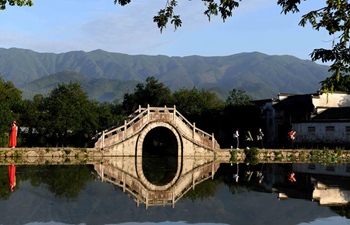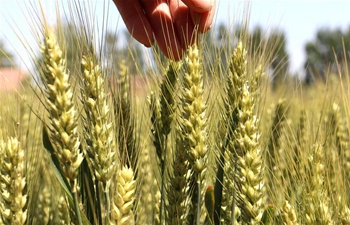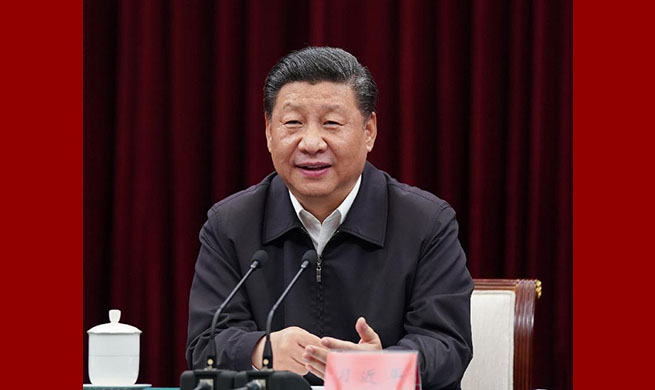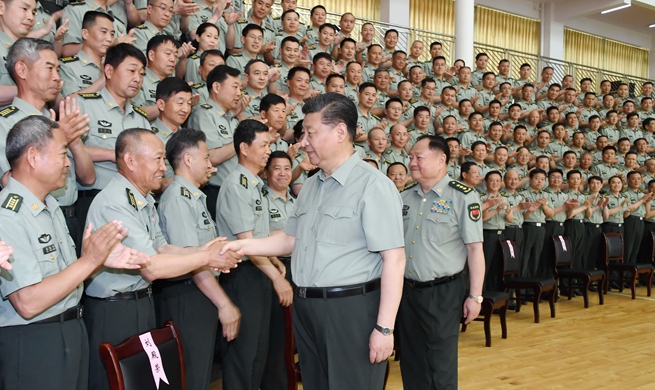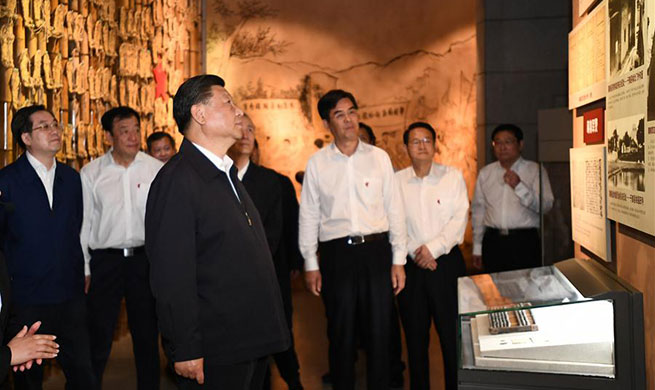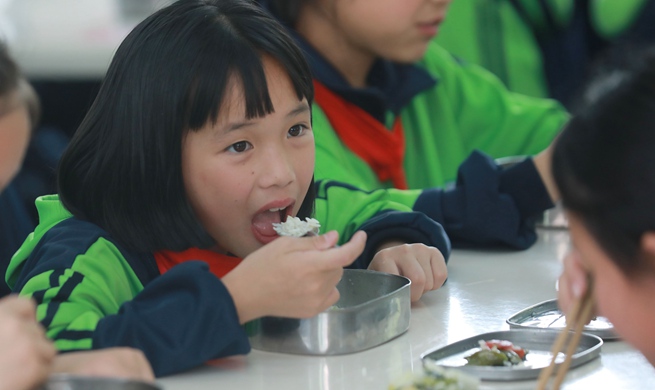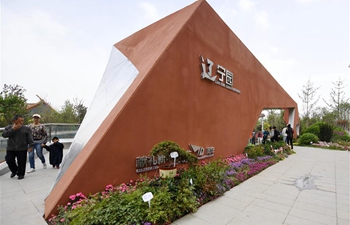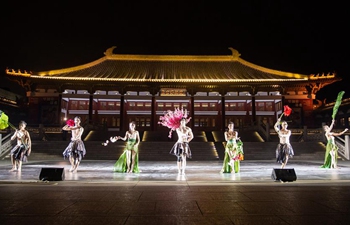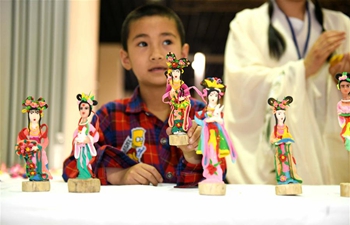BEIJING, May 22 (Xinhua) -- Strolling in a botanical garden in Wuhan, capital city of central China's Hubei Province, Lucienne Human came across a new technology that could solve problems with water hyacinths, an invasive plant that had bothered his peer researchers in South Africa for a long time.
The new technology developed by Wuhan Botanical Garden, Chinese Academy of Sciences, allows water hyacinths to be controlled and shifted into organic fuel, according to Wang Qingfeng, deputy director of the garden.
As a biogeochemist, Lucienne paid close attention to the new technology. "We have the same problems, water hyacinths damage our native plants and block the rivers with their rapid speed of growth. I hope we will have the chance to cooperate with Wuhan Botanical Garden on limiting the spread of invasive species," he said.
Lucienne and 24 other young researchers and officials from 18 African countries were recently invited to the China InnoTour for African Young Scientists, co-sponsored by China's Ministry of Science and Technology and Ministry of Foreign Affairs.
The new technology for controlling water hyacinths has been rolled out on a small scale in Africa by the Sino-Africa Joint Research Center (SAJOREC) of the Chinese Academy of Sciences, according to Wang Qingfeng, head of the center.
Wuhan Botanical Garden, as the main implementer of SAJOREC, has participated in cooperation between China and Africa in multiple fields, since the establishment of the center in 2013.
In the past six years, SAJOREC, headquartered in Jomo Kenyatta University of Agriculture and Technology in Kenya, has put forward more than 48 joint research programs focusing on biodiversity investigation, pathogenic microorganism detection, geographic science and remote sensing, high-yield and high-quality crop cultivation demonstration and land and water resources management.
So far, SAJOREC has provided scholarships to over 149 students from Africa to pursue master's or PhD degrees, most of whom are from Kenya. Over 250 scientists and senior technicians from 15 African countries have been trained through the organization, which offers 22 training courses and seminars.
The young Africans also visited Tsinghua University, the Chinese Academy of Agricultural Sciences, Wuhan National Biological Industry Base (Biolake) and other research institutes and cultural sites in Beijing and Hubei Province.
"We have seen from this tour what China has and what China can offer to African countries. I can not wait to tell our government what we have learned here and what we have planned for the future after return," said Mucktarr Darboe, an official with the Ministry of Higher Education, Research, Science and Technology of The Gambia. "We look forward to more exchange chances and more science and tech cooperation between China and Africa in the future."

